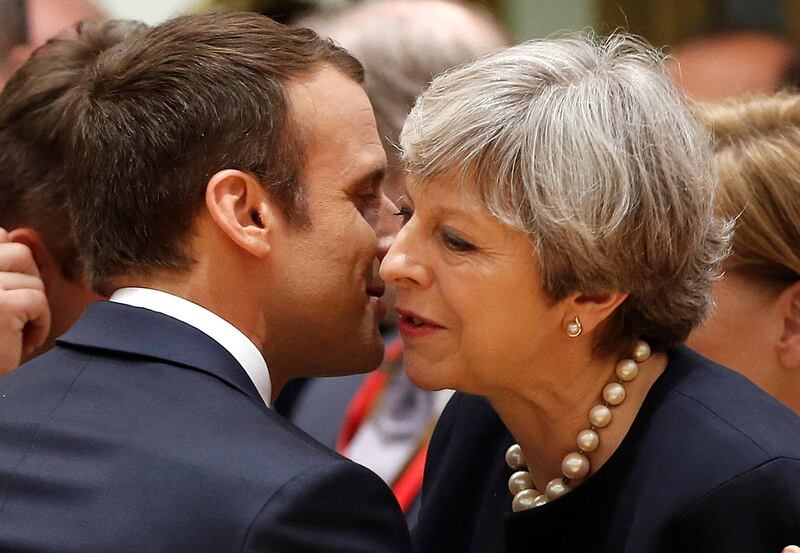French President Emmanuel Macron is planning to make Britain contribute towards the cost of tighter border controls in Calais after Brexit, according to media reports.
Mr Macron will travel to London in mid-January for a summit with British Prime Minister Theresa May, at which he will raise the border issue, The Telegraph reported.
French politicians are piling pressure on Mr Macron to force Britain to help fund the new customs posts at France’s Channel ports after it leaves the EU.
However, senior Brexiteers roundly rejected the idea that the UK should contribute to the cost, calling it “illogical” and “absurd”.
Former Conservative party leader Iain Duncan Smith said: “There is no logical or legal reason why Britain should pay anything towards this. It’s an absurdity.
“No other country is asking for money, not Holland, not Belgium, and Mrs May should remind Mr Macron that he stands to benefit from this arrangement because France sells more goods to us than we sell to them.”
The issue of tighter border controls at Calais has not yet come up in the formal Brexit talks, although French officials say it may cost more than preparing the Irish border for the UK’s departure.
Jean-Paul Mulot, northern France's envoy to the UK, told The Telegraph it would cost hundreds of millions of pounds to build the new customs infrastructure which needs to be in place by the time Britain leaves the EU, when the free movement of goods ends.
_______________
Read more:
[ Brexit is all about borders and barriers. Peace in Ireland is not ]
[ EU leaders back decision on Brexit talks ]
[ Brexit talks to move to second phase after clearing Northern Ireland hurdle ]
_______________
Mr Mulot said the bill should be shared between Britain, France and the rest of the EU, adding that it was similar to the UK’s funding for passport checks that take place on French soil under the Le Touquet treaty.
The Channel is one of Europe’s busiest trade routes and French officials are anxious to maintain the fluid movement of goods across it after Brexit.
“At the height of the migrants' crisis two years ago, when cross-Channel traffic was being disrupted, Volkswagen’s Oxford factory considered closing temporarily because it was running out of parts,” Mr Mulot said. “About 800,000 car parts cross the Channel each day, and huge quantities of food too.”
He said he was optimistic that the UK would agree to pay, despite reports that British officials have already dismissed the idea.
Brexiteers will find the cost hard to stomach after the UK already conceded on the so-called ‘divorce bill’ last month, in order to move the talks onto a future trade agreement.
“Theresa May can smile sweetly at Mr Macron and tell him there will not be a penny more than has already been agreed,” Mr Duncan-Smith said.
“We have already said how much we will pay, and if the EU wants to give some of that money to France that’s up to them.”






